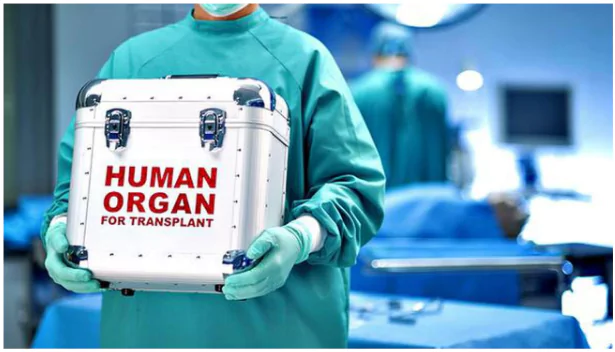India has launched its first registry for patients needing hand transplants.
Registry of hand transplants
- The registry, under the National Organ and Tissue Transplant Organisation (NOTTO), aims to ensure transparent and priority-based allocation of donated hands.
- Patients requiring hand transplants can register with the National Organ and Tissue Transplant Organisation (NOTTO) under the “bone” category.
About Hand Transplantation

- Hand transplantation is a surgery where a new hand or arm from a donor is attached to someone who has lost their own hand or arm.
- Hands fall under the category of ‘composite tissue’.
- Registered Hospitals: There are currently nine hospitals registered for performing hand transplants in the country.
- Conditions for Hand Donation
- Brain Death: Hands can be donated after the donor has been declared brain dead.
Enroll now for UPSC Online Course
Composite tissue
- These are types of tissue which are made of more than one type of cell or tissues such as skin, muscle, nerves, tendons, bone, and blood.
- These tissues work together to perform a specific function.
|
-
- Cardiac Death: In some cases, hands can also be donated after cardiac death.
- However, this requires that the donation takes place within 30 minutes of the heart stopping.
Benefits and Challenges of Hand Transplantation in India
Benefits
- Improved Quality of Life: Hand transplantation can significantly enhance the quality of life for individuals who have lost one or both hands.
- It can restore functionality, independence, and self-esteem.
- Increased Access: The establishment of a national registry will improve access to hand transplants by facilitating the efficient allocation of donated organs.
Challenges
- Lack of Donated Hands: The primary challenge is the shortage of donated hands.
- Logistical Difficulties: Transporting donated hands across the country can be logistically challenging.
- Surgical Complexity: Hand transplantation is a complex procedure requiring specialized expertise.
- Financial Costs: The procedure can be expensive.
- Other Risks: infection, nerve damage, and blood vessel problems.
Check Out UPSC CSE Books From PW Store
Regulatory Framework for Organ Transplantation in India
-
Transplantation of Human Organs and Tissues Act (THOTA), 1994
- THOTA 1994 Provides the legal framework for organ transplantation in India.
- Organ Donation: Organs can be donated by deceased individuals or living donors.
- Altruistic Donations: Donations from distant relatives, in-laws, or long-time friends are allowed but require additional checks.
- Unrelated Donors: Must provide documents to prove a long-term connection.
- Organ Trafficking: Offering or paying for organs is illegal and punishable by up to 10 years in jail and a fine.
- Brain Death: Brain stem death is legally recognized as death.
- Transplantation Rules: The Transplantation of Human Organs and Tissues Rules 2014 promote organ donation from deceased donors.
-
National Organ and Tissue Transplant Organisation (NOTTO)
-
- NOTTO provides a national system for organ procurement and distribution.
-
-
-
National Organ Transplantation Guidelines
- Removed Age Cap: There is no longer an upper age limit for organ recipients.
- No Domicile Requirement: Patients can register for organs in any state.
- No Registration Fees: States are instructed to discontinue registration fees.
-
Organ Transport Policy
- Uniform Policy: A uniform policy has been finalized to speed up organ transport between hospitals.
- Involvement of Ministries: The policy was created by Niti Aayog with input from various ministries.
Enroll now for UPSC Online Classes
![]() 9 Sep 2024
9 Sep 2024
